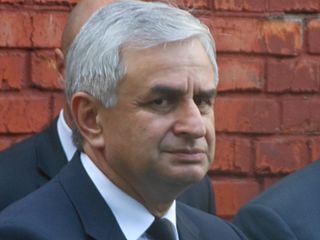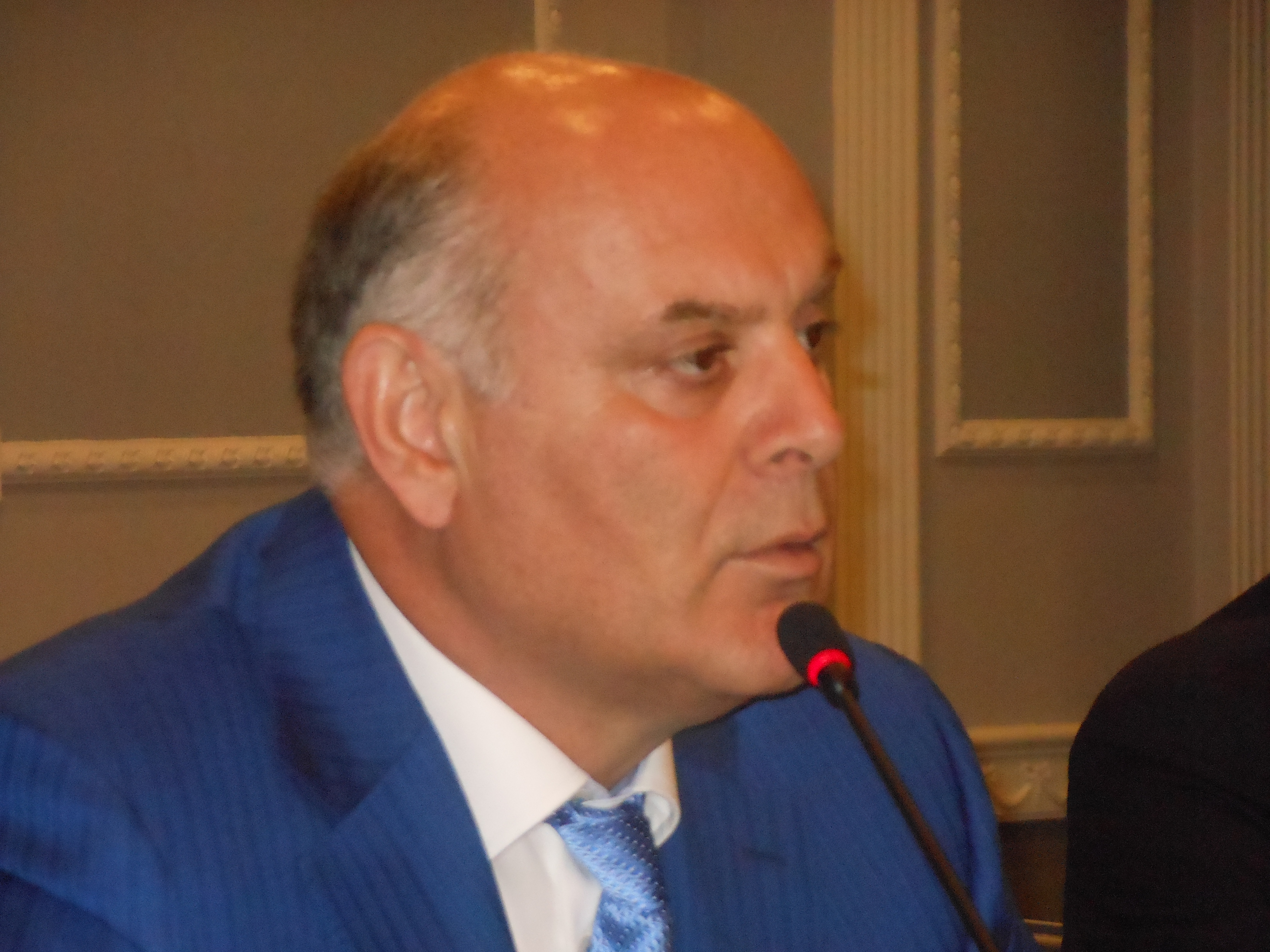
Amtsakhara is the principal opposition party of Abkhazia.

The Prime Minister of Abkhazia is the head of government of the Republic of Abkhazia.
The office of Minister for Foreign Affairs of the Republic of Abkhazia was created on 17 May 1993, during the 1992-1993 war with Georgia. Due to the diplomatic isolation of Abkhazia, which remains widely unrecognised, the role of the foreign minister has been restricted mostly to negotiations over resolving the Georgian-Abkhazian conflict.
Sergei Shamba is a senior politician from Abkhazia. He is currently a member of the People's Assembly of Abkhazia and Chairman of United Abkhazia. He was Prime Minister of Abkhazia under President Sergei Bagapsh from 13 February 2010 until 27 September 2011. Between 1997 and 2010 he had been Minister for Foreign Affairs under both Bagapsh and his predecessor Vladislav Ardzinba, with only a half-year interruption in 2004. Shamba has twice unsuccessfully participated in Presidential elections, in 2004 and 2011. He has been a staunch proponent for dialogue between Abkhazia and Georgia.
Presidential elections were held in the unrecognized Republic of Abkhazia on 12 January 2005.
The Forum for the National Unity of Abkhazia is a prominent oppositional political party in Abkhazia. It is led by Former Prime Minister, Vice President and President Elect Raul Khajimba.

On 12 December 2009, Abkhazia held its fourth Presidential election since the post of President of the Autonomous Republic of Abkhazia was created in 1994. The election was won by incumbent president Sergei Bagapsh in the first round with 61% of the votes, thus gaining a second term in office. He was inaugurated on 12 February 2010. Bagapsh competed against four opposition candidates: former Vice President and Prime Minister Raul Khajimba, who came second behind Bagapsh in the 2004 Presidential election, and newcomers Beslan Butba, Zaur Ardzinba and Vitali Bganba. Khajimba had stated that he, Ardzinba and Butba would support each other should one of them reach the second round of the election.
The 5th convocation of the People's Assembly of Abkhazia has been in place since 3 April 2012.
Almasbei Kchach was a former government member and vice-presidential candidate from Abkhazia who committed suicide when investigators came to arrest him in connection with an assassination attempt on President Alexander Ankvab.
The Abkhazian Revolution took place in 2014, when President Aleksandr Ankvab resigned after hundreds of demonstrators stormed his office. After mass protests in the capital Sukhumi and the occupation of his office on 27 May, Ankvab fled to his hometown of Gudauta and ultimately resigned on 1 June, after previously denouncing the demonstration as an attempted coup d'état.
The Minister for Internal Affairs holds a ministerial position in the government of the Republic of Abkhazia. The post existed in the Soviet period within the Council of Ministers of the Abkhaz Autonomous Soviet Socialist Republic, and since then has been occupied by 10 politicians, of whom three have occupied it twice. The current Minister is Aslan Kobakhia.

The Government of President Raul Khajimba is the current Government of the Republic of Abkhazia.
Shamil Adzynba is the current First Vice Premier of Abkhazia in the Government of President Khajimba, and a two-time acting Prime Minister.
Artur Mikvabia is an economist and politician from Abkhazia. He was Prime Minister in the Government of President Khajimba between 20 March 2015 and 26 July 2016.
Beslan Khagba is a former Minister for Internal Affairs of Abkhazia.

Aslan Bzhania is a former Head of the State Security Service, a former Presidential candidate and one of the current leaders of the opposition in Abkhazia.







